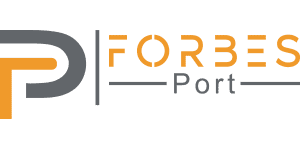What Do I Need to Open a Checking Account?

Opening a checking account is a fundamental step in managing your personal finances. Whether you’re starting your first job, managing household finances, or simply looking to switch banks, knowing what you need to open a checking account is essential. This guide will walk you through the requirements and considerations for opening a checking account, ensuring a smooth and hassle-free process.
Understanding the Basics of a Checking Account
Before diving into the specifics, it’s important to understand what a checking account is and why it’s beneficial. A checking account is a type of bank account that allows for frequent transactions, such as deposits, withdrawals, and direct payments. It’s typically used for day-to-day financial activities, making it a convenient tool for managing your money.
Essential Documents and Information
1. Personal Identification
Banks require valid, government-issued identification to open an account. This could be:
- A driver’s license
- A state ID card
- A passport
The purpose is to verify your identity and comply with various banking regulations.
2. Social Security Number or Individual Taxpayer Identification Number
Your Social Security Number (SSN) or Individual Taxpayer Identification Number (ITIN) is necessary for tax purposes and to further confirm your identity.
3. Proof of Address
You’ll need to provide proof of your current address. This can be a utility bill, lease agreement, or a recent bank statement with your address on it.
4. Minimum Deposit
Many banks require a minimum deposit to open a checking account. This amount varies by bank and can range from a nominal sum to several hundred dollars.
Choosing the Right Checking Account
Types of Checking Accounts
- Standard Checking Accounts: Ideal for everyday use with easy access to funds.
- Student Checking Accounts: Designed for students, often with lower fees and special perks.
- Senior Checking Accounts: Tailored for seniors, possibly offering benefits like no monthly fees or free checks.
- Interest-Bearing Checking Accounts: These accounts earn interest on your balance but might require a higher minimum balance.
Considerations When Choosing an Account
- Fees: Look for accounts with low or no monthly fees.
- ATM Access: Consider the bank’s ATM network and fees for using out-of-network ATMs.
- Online and Mobile Banking: Ensure the bank offers robust online and mobile banking options.
- Overdraft Protection: Understand the bank’s overdraft policies and fees.
The Process of Opening an Account
In-Person at a Bank Branch
Visit your chosen bank with all the necessary documents and information. A bank representative will guide you through the process, which typically involves filling out an application form.
Online
Many banks offer the option to open an account online. You’ll need to fill out an application form on the bank’s website and provide digital copies of your required documents.
After Opening Your Account
Once your account is open, you’ll receive checks and a debit card. It’s also a good time to set up online banking and download the bank’s mobile app for convenient account management.
Conclusion
Opening a checking account is a straightforward process, but it requires preparation. By gathering the necessary documents and understanding what to look for in an account, you can make an informed decision that suits your financial needs. Remember, a checking account is more than just a place to store your money; it’s a tool for managing your financial life efficiently and effectively.




